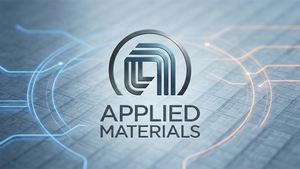
AI is rapidly reshaping industries worldwide, and its impact on the semiconductor sector is nothing short of revolutionary. As chip designs grow exponentially complex and the demands for advanced nodes intensify, artificial intelligence (AI) and machine learning (ML) are becoming indispensable tools for optimizing every stage from design to manufacturing. A significant leap forward in this transformation comes from PDF Solutions, Inc. (NASDAQ: PDFS), a leading provider of yield improvement solutions, with its next-generation AI/ML solution, Exensio Studio AI. This powerful platform is set to redefine semiconductor data analytics through its strategic integration with Intel Corporation's (NASDAQ: INTC) Tiber AI Studio, an advanced MLOps automation platform.
This collaboration marks a pivotal moment, promising to streamline the intricate AI development lifecycle for semiconductor manufacturing. By combining PDF Solutions' deep domain expertise in semiconductor data analytics with Intel's robust MLOps framework, Exensio Studio AI aims to accelerate innovation, enhance operational efficiency, and ultimately bring next-generation chips to market faster and with higher quality. The immediate significance lies in its potential to transform vast amounts of manufacturing data into actionable intelligence, tackling the "unbelievably daunting" challenges of advanced chip production and setting new industry benchmarks.
The Technical Core: Unpacking Exensio Studio AI and Intel's Tiber AI Studio Integration
PDF Solutions' Exensio Studio AI represents the culmination of two decades of specialized expertise in semiconductor data analytics, now supercharged with cutting-edge AI and ML capabilities. At its heart, Exensio Studio AI is designed to empower data scientists, engineers, and operations managers to build, train, deploy, and manage machine learning models across the entire spectrum of manufacturing operations and the supply chain. A cornerstone of its technical prowess is its ability to leverage PDF Solutions' proprietary semantic model. This model is crucial for cleaning, normalizing, and aligning disparate manufacturing data sources—including Fault Detection and Classification (FDC), characterization, test, assembly, and supply chain data—into a unified, intelligent data infrastructure. This data harmonization is a critical differentiator, as the semiconductor industry grapples with vast, often siloed, datasets.
The platform further distinguishes itself with comprehensive MLOps (Machine Learning Operations) capabilities, automation features, and collaborative tools, all while supporting multi-cloud environments and remaining hardware-agnostic. These MLOps capabilities are significantly enhanced by the integration of Intel's Tiber AI Studio. Formerly known as cnvrg.io, Intel® Tiber AI Studio is a robust MLOps automation platform that unifies and simplifies the entire AI model development lifecycle. It specifically addresses the challenges developers face in managing hardware and software infrastructure, allowing them to dedicate more time to model creation and less to operational overhead.
AI Studio is a robust MLOps automation platform that unifies and simplifies the entire AI model development lifecycle. It specifically addresses the challenges developers face in managing hardware and software infrastructure, allowing them to dedicate more time to model creation and less to operational overhead.
The integration, a result of a strategic collaboration spanning over four years, means Exensio Studio AI now incorporates Tiber AI Studio's powerful MLOps framework. This includes streamlined cluster management, automated software packaging dependencies, sophisticated pipeline orchestration, continuous monitoring, and automated retraining capabilities. The combined solution offers a comprehensive dashboard for managing pipelines, assets, and resources, complemented by a convenient software package manager featuring vendor-optimized libraries and frameworks. This hybrid and multi-cloud support, with native Kubernetes orchestration, provides unparalleled flexibility for managing both on-premises and cloud resources. This differs significantly from previous approaches, which often involved fragmented tools and manual processes, leading to slower iteration cycles and higher operational costs. The synergy between PDF Solutions' domain-specific data intelligence and Intel's MLOps automation creates a powerful, end-to-end solution previously unavailable to this degree in the semiconductor space. Initial reactions from industry experts highlight the potential for massive efficiency gains and a significant reduction in the time required to deploy AI-driven insights into production.
Industry Implications: Reshaping the Semiconductor Landscape
This strategic integration of Exensio Studio AI and Intel's Tiber AI Studio carries profound implications for AI companies, tech giants, and startups within the semiconductor ecosystem. Intel, as a major player in chip manufacturing, stands to benefit immensely from standardizing on Exensio Studio AI across its operations. By leveraging this unified platform, Intel can simplify its complex manufacturing data infrastructure, accelerate its own AI model development and deployment, and ultimately enhance its competitive edge in producing advanced silicon. This move underscores Intel's commitment to leveraging AI for operational excellence and maintaining its leadership in a fiercely competitive market.
Beyond Intel, other major semiconductor manufacturers and foundries are poised to benefit from the availability of such a sophisticated, integrated solution. Companies grappling with yield optimization, defect reduction, and process control at advanced nodes (especially sub-7 nanometer) will find Exensio Studio AI to be a critical enabler. The platform's ability to co-optimize design and manufacturing from the earliest stages offers a strategic advantage, leading to improved performance, higher profitability, and better yields. This development could potentially disrupt existing product offerings from niche analytics providers and in-house MLOps solutions, as Exensio Studio AI offers a more comprehensive, domain-specific, and integrated approach.
For AI labs and tech companies specializing in industrial AI, this collaboration sets a new benchmark for what's possible in a highly specialized sector. It validates the need for deep domain knowledge combined with robust MLOps infrastructure. Startups in the semiconductor AI space might find opportunities to build complementary tools or services that integrate with Exensio Studio AI, or they might face increased pressure to differentiate their offerings against such a powerful integrated solution. The market positioning of PDF Solutions is significantly strengthened, moving beyond traditional yield management to become a central player in AI-driven semiconductor intelligence, while Intel reinforces its commitment to open and robust AI development environments.
Broader Significance: AI's March Towards Autonomous Chipmaking
The integration of Exensio Studio AI with Intel's Tiber AI Studio fits squarely into the broader AI landscape trend of vertical specialization and the industrialization of AI. While general-purpose AI models capture headlines, the true transformative power of AI often lies in its application to specific, complex industries. Semiconductor manufacturing, with its massive data volumes and intricate processes, is an ideal candidate for AI-driven optimization. This development signifies a major step towards what many envision as autonomous chipmaking, where AI systems intelligently manage and optimize the entire production lifecycle with minimal human intervention.
The impacts are far-reaching. By accelerating the design and manufacturing of advanced chips, this solution directly contributes to the progress of other AI-dependent technologies, from high-performance computing and edge AI to autonomous vehicles and advanced robotics. Faster, more efficient chip production means faster innovation cycles across the entire tech industry. Potential concerns, however, revolve around the increasing reliance on complex AI systems, including data privacy, model explainability, and the potential for AI-induced errors in critical manufacturing processes. Robust validation and human oversight remain paramount.
This milestone can be compared to previous breakthroughs in automated design tools (EDA) or advanced process control (APC) systems, but with a crucial difference: it introduces true learning and adaptive intelligence. Unlike static automation, AI models can continuously learn from new data, identify novel patterns, and adapt to changing manufacturing conditions, offering a dynamic optimization capability that was previously unattainable. It's a leap from programmed intelligence to adaptive intelligence in the heart of chip production.
Future Developments: The Horizon of AI-Driven Silicon
Looking ahead, the integration of Exensio Studio AI and Intel's Tiber AI Studio paves the way for several exciting near-term and long-term developments. In the near term, we can expect to see an accelerated deployment of AI models for predictive maintenance, advanced defect classification, and real-time process optimization across more semiconductor fabs. The focus will likely be on demonstrating tangible improvements in yield, throughput, and cost reduction, especially at the most challenging advanced nodes. Further enhancements to the semantic model and the MLOps pipeline will likely improve model accuracy, robustness, and ease of deployment.
On the horizon, potential applications and use cases are vast. We could see AI-driven generative design tools that automatically explore millions of design permutations to optimize for specific performance metrics, reducing human design cycles from months to days. AI could also facilitate "self-healing" fabs, where machines detect and correct anomalies autonomously, minimizing downtime. Furthermore, the integration of AI across the entire supply chain, from raw material sourcing to final product delivery, could lead to unprecedented levels of efficiency and resilience. Experts predict a shift towards "digital twins" of manufacturing lines, where AI simulates and optimizes processes in a virtual environment before deployment in the physical fab.
Challenges that need to be addressed include the continued need for high-quality, labeled data, the development of explainable AI (XAI) for critical decision-making in manufacturing, and ensuring the security and integrity of AI models against adversarial attacks. The talent gap in AI and semiconductor expertise will also need to be bridged. Experts predict that the next wave of innovation will focus on more tightly coupled design-manufacturing co-optimization, driven by sophisticated AI agents that can negotiate trade-offs across the entire product lifecycle, leading to truly "AI-designed, AI-manufactured" chips.
Wrap-Up: A New Chapter in Semiconductor Innovation
In summary, the integration of PDF Solutions' Exensio Studio AI with Intel's Tiber AI Studio represents a monumental step in the ongoing AI revolution within the semiconductor industry. Key takeaways include the creation of a unified, intelligent data infrastructure for chip manufacturing, enhanced MLOps capabilities for rapid AI model development and deployment, and a significant acceleration of innovation and efficiency across the semiconductor value chain. This collaboration is set to transform how chips are designed, manufactured, and optimized, particularly for the most advanced nodes.
This development's significance in AI history lies in its powerful demonstration of how specialized AI solutions, combining deep domain expertise with robust MLOps platforms, can tackle the most complex industrial challenges. It marks a clear progression towards more autonomous and intelligent manufacturing processes, pushing the boundaries of what's possible in silicon. The long-term impact will be felt across the entire technology ecosystem, enabling faster development of AI hardware and, consequently, accelerating AI advancements in every field.
In the coming weeks and months, industry watchers should keenly observe the adoption rates of Exensio Studio AI across the semiconductor industry, particularly how Intel's own manufacturing operations benefit from this integration. Look for announcements regarding specific yield improvements, reductions in design cycles, and the emergence of novel AI-driven applications stemming from this powerful platform. This partnership is not just about incremental improvements; it's about laying the groundwork for the next generation of semiconductor innovation, fundamentally changing the landscape of chip production through the pervasive power of artificial intelligence.
This content is intended for informational purposes only and represents analysis of current AI developments.
TokenRing AI delivers enterprise-grade solutions for multi-agent AI workflow orchestration, AI-powered development tools, and seamless remote collaboration platforms.
For more information, visit https://www.tokenring.ai/.





